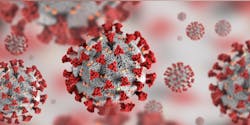NIH launches long COVID clinical trials through RECOVER Initiative, opening enrollment
The National Institutes of Health launched and is opening enrollment for phase 2 clinical trials that will evaluate at least four potential treatments for long COVID, with additional clinical trials to test at least seven more treatments expected in the coming months. Treatments will include drugs, biologics, medical devices and other therapies. The trials are designed to evaluate multiple treatments simultaneously to identify more swiftly those that are effective. Part of the NIH’s Researching COVID to Enhance Recovery (RECOVER) Initiative, the trials were informed by findings from other RECOVER research over the past two years and focus on several of the symptoms described as most burdensome by people experiencing long COVID. With its complementary research efforts, RECOVER has positioned NIH to design and conduct trials that have the potential to provide long COVID patients who experience varying symptoms with relief sooner than any individual study can alone.
The trials that launched recently will focus on viral persistence and cognitive dysfunction using “platform protocols,” a term used to describe the adaptive design of these trials.
RECOVER-VITAL will initially focus on a treatment targeting SARS-CoV-2 persistence, which could occur if the virus stays in the body and causes the immune system to not function properly or damage to the organs. The first intervention will test a longer dose regimen of the antiviral PAXLOVID (nirmatrelvir and ritonavir) than is used for treating acute COVID to see if it improves the symptoms of patients with long COVID. PAXLOVID is provided by Pfizer, Inc., New York City, and is currently approved for the treatment of mild-to-moderate COVID-19 in adults who are at high risk for progression to severe COVID-19, including hospitalization or death. The first trial sites have been activated and are enrolling.
RECOVER-NEURO will examine accessible interventions for cognitive dysfunction related to long COVID, including brain fog, memory problems and difficulty with attention, thinking clearly and problem solving. Interventions under this protocol will include a web-based brain training program called BrainHQ, developed by Posit Science Corporation in San Francisco, that has been used to improve cognitive function; PASC-Cognitive Recovery, a web-based goal management training program, developed by Mount Sinai Health System, New York City, that has been used to improve executive function; and a device used for home-based transcranial direct current stimulation developed by Soterix Medical, Inc., Woodbridge, New Jersey, which has been demonstrated to help brain activity and blood flow. Trial sites are currently being activated.

